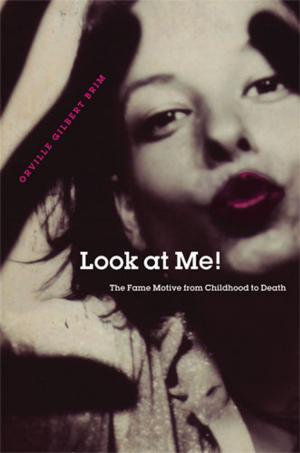Facing It
AIDS Diaries and the Death of the Author
Nonfiction, Social & Cultural Studies, Social Science, Gender Studies, Fiction & Literature, Literary Theory & Criticism| Author: | Ross Chambers | ISBN: | 9780472021932 |
| Publisher: | University of Michigan Press | Publication: | November 10, 2009 |
| Imprint: | University of Michigan Press | Language: | English |
| Author: | Ross Chambers |
| ISBN: | 9780472021932 |
| Publisher: | University of Michigan Press |
| Publication: | November 10, 2009 |
| Imprint: | University of Michigan Press |
| Language: | English |
For a generation or more, literary theorists have used the metaphor of "the death of the author" in considering the observation that to write is to abdicate control over the meanings one's text is capable of generating. But in the case of AIDS diaries, the metaphor can be literal. Facing It examines the genre not in classificatory terms but pragmatically, as the site of a social interaction. Through a detailed study of three such diaries, originating respectively in France, the United States, and Australia, Ross Chambers demonstrates that issues concerning the politics of AIDS writing and the ethics of reading are linked by a common concern with the problematics of survivorhood. Two of the diaries chosen for special attention in this light are video diaries: La Pudeur ou l'impudeur by Hervé Guibert (author of To the Friend Who Did Not Save My Life), and Silverlake Life, by the American videomaker Tom Joslin (aided by his lover and friends, notably Peter Friedman). The third is a defiant but anxious text, Unbecoming, by an American anthropologist, Eric Michaels, who died in Brisbane, Australia, in 1988. Other authors more briefly examined include Pascal de Duve, Bertrand Duquénelle, Alain Emmanuel Dreuilhe, David Wojnarowicz, Gary Fisher, and the filmmaker (not a diarist) Laurie Lynd. Finally, Facing It takes on the issue of its own relevance, asking what contributions literary criticism can make in the midst of an epidemic.
"Groundbreaking in its approach and potentially wide in its appeal. . . . The rigor of the ideas, their dramatic nature, and the political drive of the rhetoric all should win Facing It a large readership that could extend far beyond students of narrative or queer theory." --David Bergman, Towson University, editor of Camp Grounds: Style and Homosexuality
Ross Chambers is Distinguished University Professor of French and Comparative Literature, University of Michigan, and author of Room for Maneuver: Reading (the) Oppositional (in) Narrative and Story and Situation: Narrative Seduction and the Power of Fiction.
For a generation or more, literary theorists have used the metaphor of "the death of the author" in considering the observation that to write is to abdicate control over the meanings one's text is capable of generating. But in the case of AIDS diaries, the metaphor can be literal. Facing It examines the genre not in classificatory terms but pragmatically, as the site of a social interaction. Through a detailed study of three such diaries, originating respectively in France, the United States, and Australia, Ross Chambers demonstrates that issues concerning the politics of AIDS writing and the ethics of reading are linked by a common concern with the problematics of survivorhood. Two of the diaries chosen for special attention in this light are video diaries: La Pudeur ou l'impudeur by Hervé Guibert (author of To the Friend Who Did Not Save My Life), and Silverlake Life, by the American videomaker Tom Joslin (aided by his lover and friends, notably Peter Friedman). The third is a defiant but anxious text, Unbecoming, by an American anthropologist, Eric Michaels, who died in Brisbane, Australia, in 1988. Other authors more briefly examined include Pascal de Duve, Bertrand Duquénelle, Alain Emmanuel Dreuilhe, David Wojnarowicz, Gary Fisher, and the filmmaker (not a diarist) Laurie Lynd. Finally, Facing It takes on the issue of its own relevance, asking what contributions literary criticism can make in the midst of an epidemic.
"Groundbreaking in its approach and potentially wide in its appeal. . . . The rigor of the ideas, their dramatic nature, and the political drive of the rhetoric all should win Facing It a large readership that could extend far beyond students of narrative or queer theory." --David Bergman, Towson University, editor of Camp Grounds: Style and Homosexuality
Ross Chambers is Distinguished University Professor of French and Comparative Literature, University of Michigan, and author of Room for Maneuver: Reading (the) Oppositional (in) Narrative and Story and Situation: Narrative Seduction and the Power of Fiction.















